2024 is all about you: your successes, your...

"Chefs de Bande" - the podcast about leadership and management created by a KEDGE graduate
Martin Dirick, a 2019 graduate from KEDGE’s Grande Ecole Programme, has just launched, in parallel to his successful career, a podcast dedicated to leadership and management
To begin, tell us about your educational background. What did you study, both before and at KEDGE?
Like 90% of high school students, I was completely lost after I got my diploma. So I took the safe route and did a year of prep school in literature but wasn’t convinced that was the right path for me. I decided that law was my true calling and I started law school the following year. This took four years of law, including one (great!) year doing an Erasmus in Ireland. I had to specialise during my 4th year of my Master 1, and it was then that I discovered business law.
And there, a new plot twist! I realised that what I liked best about this speciality was not so much the law aspect as much as it was the business aspect. So I registered at the last minute for the competitive entrance exam to business school. I passed the written and oral exams and got into my school of choice, which was KEDGE.
When I started the first year of the Grande Ecole Master Programme, I finally felt like I was in the right environment. I went to Canada during my gap year and graduated in 2019. And I'm happy to say that I (finally) seem to be on the right path as I haven't started studying medicine or horticulture (at least for now...).
Were you a member of any student associations when you were at KEDGE?
Yes. I joined the best association in school (said in all objectivity of course), the film association Extérieur Nuit. It was without a doubt THE most awesome part of my time in school! Associations are one of the huge advantages of the school over the university because, in the space of a year, you learn a lot of things that will be useful in your career.
That was a year where you can give free rein to your creativity, learn to manage very concrete problems (budgets, organisation, management, etc.), and discover completely new worlds (festivals, cinema, production, etc.). Most of all, it provides you with the chance to meet people with whom you can create very strong bonds. Many of the contacts I made have become very important people in my life, even today. Four years later, and after having moved far away from Bordeaux, a large part of my close social circle is still from Extérieur Nuit.
Tell us what you did after your studies were finished. What positions have you held? What did you learn in those positions?
Voir cette publication sur Instagram
Somewhat like the school associations, when you work in a start-up that is just launching you to learn at a frenetic pace because everything is to be done. On top of that, the early days of a start-up are full of moments of joy and moments of uncertainty, so it was an emotional rollercoaster for two years. But it’s a very formative experience and I recommend it without hesitation to anyone who is just starting out so he or she can get initiated into a multitude of subjects very quickly.
I left the company in 2020 because it moved to Bordeaux in 2020 and chose to stay in Paris. I started my own business as a freelance consultant in marketing strategy and content. I help companies develop a marketing strategy that will increase their visibility and sales through relevant content for their target audience. I’ve also associated with a former colleague to set up a software development company. We help companies find developers and competent graphic designers to meet their needs. And we work with small businesses, as well as with large companies like Bouygues.
Tell us about your podcast, "Chefs de Bande".
Two months ago, I launched an interviews podcast of individuals who stand out from the crowd, lead, and influence others in which I talk with them about their careers and their leadership and management roles. I try to interview a variety of profiles, including company founders, directors of large companies, coaches, influencers, a starred chef, a high-ranking military officer, etc.
The idea is to identify the key skills and attributes that they’ve used to get where they are and that they use to unite everyone around them so that we can use them too.
The idea came from several places at once. First of all, I think that we all ask ourselves questions on how to progress in our careers, so learning from people who are further along the path than we are is always worthwhile. Secondly, I think leadership skills are useful for everyone in all situations. We often think about it in a professional context, and it's true that it's an important aspect when you're trying to build a business or manage a team. But leadership methods are useful whenever you interact with others to get them to rally to your side or around your ideas. Whether it's in a meeting, raising children, dealing with your partner, friends or even strangers.
Knowing how to convey an idea and get others on board is an essential skill in everyday life, even if it's just deciding what movie to watch! I’m positive that improving one's leadership skills is beneficial for everyone, regardless of his or her age or profession. The podcast came about because I wanted to explore the various leadership topics with people who know more about them than I do!
How did the education you received at KEDGE Business School help you become who you are today, and what was it about its teachings helped you develop your project?
I think that my time at KEDGE helped me to realise that I could handle whatever came up, no matter what the problem was. That was particularly because of my involvement in the association, where many unforeseen events were constantly occurring. You just learn to deal with them and do your best under the circumstances. That confidence is what helped keep me from being afraid to work for myself in the middle of a pandemic or to start a company.
As for the podcast itself, my dissertation was on leadership. I chose that topic because of an M1 course taught by Olivier Stul, who opened my eyes to what leadership is. The podcast is the outcome of my progress on leadership and how to get better at it.
If you were to give advice to any KEDGE graduate who wants to do something similar, what would it be?
It's the most clichéd advice in the world but go for it, no matter what your project is. Whether it's a podcast, working for yourself, starting a business, or whatever, the barriers today are minimal and the costs are virtually nil. The quicker you get started, the quicker you’ll get your feet wet and get better at it.
Contrary to what people think, it’s absolutely normal and acceptable to start something rubbish the first time. To crash your first business, to publish a podcast that has terrible audibles, or making a short film that is dead boring, is normal To totally blow your first sales call (mine first one was hell!) or completely mess up your first pitch are also normal. In fact, these types of experiences are practically a must for everyone.
What counts next is that the second time it happens is not as bad, the third one even less so, etc. So the longer you wait to hit your first wall is the longer it will take before you can be proud of your work.Voir cette publication sur Instagram
Anything you’d like to add? A message to pass on?
If you want to hear the story (very different from mine) of a former KEDGE student who is conquering the jewellery world with her brand Waekura, listen to Episode 9 of the podcast! In it, Melissa Artis discusses how she transformed her student project at KEDGE into a brand that has more than 10 people working for it throughout Europe and Asia!
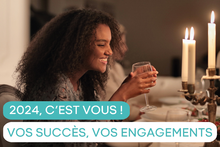
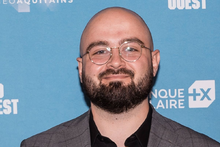
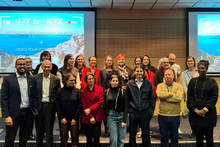
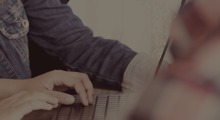
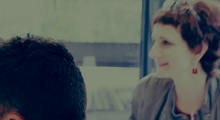
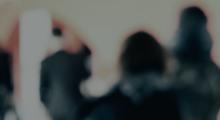
0 Comment
You must be logged in to leave a comment.
No comment